It is inappropriate to judge African writing with the poverty porn that is hawked for profit by writers like Uwem Akpan and Chris Abani. — Ikhide Ikheloa
Two weeks ago, I emailed Nigerian literary critic, Ikhide Ikheloa, a list of questions that covered everything from African publishing to sex in African novels. Read and enjoy his deeply reflective and illuminating responses. Just so you get a sense of who you are about to encounter, here is how Mr. Ikheloa describes himself on Twitter: “I am not a writer. I am a reader who writes. Highly opinionated to the point of distraction. Prediction: The book and the library are dying. Ideas live.” Expect to get more of this sharp and irreverent wit in the interview that follows.
Let’s begin by talking about your role in the African/Nigerian literary community. What is your role in this community? Do you see yourself as a literary critic?
I do not necessarily see myself as having a role in the African/Nigerian literary community. I am merely a consumer hooked on the stories of our people, and this generation of African writers has masterfully taken advantage of today’s technologies to give voice to our stories and our songs. I am excited to be part of a thriving vibrant community of readers and writers. It is a great time to be alive if you love African literature. I do and I am happy to still be here to be part of the renaissance. It is true, however, that my strong views on literature and our world have garnered me some attention, some of it undesirable and undeserved.It is correct that I have reviewed several books; however, I do not see myself as a literary critic. Much of what people call reviews are really my commentaries on our condition as Africans, sometimes using a particular book as a launching pad. Many remember me as “that literary critic” but I do write creative pieces, fiction, non-fiction, prose and poetry. I can’t legislate relationships, so I really can’t stop people from giving me labels that fit their perceptions of me. How do I see myself? I am a reader who writes.
In the Nigerian literary circle particularly, you have become a literary authority. How did that happen? How did you come to love and think and write about literary things?
Many mistake my strong views and my eagerness to share them as proof that I am a literary authority. Nothing could be further from the truth. I read and write voraciously; not sure how and why I find the time, since I live a very busy professional and personal life. The truth is that I have been writing on the Internet since the early nineties when I joined Naijanet, the first ever social media by Nigerians. The Internet has exposed me to several watering holes where African writers hang out and so my relationship with many writers goes back a long way, thanks to long hours spent debating and fighting over virtually every anxiety that occupies the African writer’s mind. I was also lucky to have my writings exposed to the world by the likes of Sola Osofisan of nigeriansinamerica.com, Muhtar Bakare of Farafina Books and Molara Wood, and Dele Olojede of Next Newspapers.
Growing up I was surrounded by books, my generation of youths had no choice but to read books, there was not much else to do. My parents did not have television for a very long time and so I read. My friends and I loved to sit on empty beer cartons and fight over essays in newspapers and magazines and exchange notes on books we were reading. As for writing, I have been drawn to writing since childhood by a mysterious force; I can only say I am genetically wired to express myself, to have strong opinions, etc.
NEXT was such a wonderful media project, and we are sad that it didn’t work out. Tell us about your time at NEXT. Did it play a part in securing your current place in the literary community?
Besides Osofisan and Bakare, Olojede and Molara Wood of NEXT are the most important reasons for whatever stature I might have in the literary community. I have my differences with Olojede (see What Dele Olojede owes us next), but I will always be grateful to him and Wood for the exposure. I was sad and angry when it ended, because it was such an enchanting and romantic time, I fell in love with the word. I looked forward to churning out an article every week – for three years. When I visited Nigeria, in September 2009, I was pleasantly surprised and flattered by how many Nigerians in bookstores and literary hang-outs recognized me. Yes, I would not be talking to you today without those four dreamers and doers; Osofisan, Bakare, Wood and Olojede.
With Valentines Day barely behind us, I want us to touch briefly on African novels and the erotic. The sex scenes in Buchi Emecheta’s Joys of Motherhood are more hilarious than erotic. I wouldn’t have minded seeing what Okonkwo was capable of doing in the darkness of his hut, but Achebe won’t have it. But then, Teju Cole seems to have far less scruples about these things. He gets pretty detailed about Julius’s quickie in Brussels. Can you comment on erotic scenes in African novels in general? Why have African novelists not always been keen on what their characters do in the bedroom?
It is interesting and frustrating to me that when we talk about literature, it is always in the context of books, alone. It is perhaps now inappropriate to use books as the sole determinant of cultural norms in today’s world. I would go further and say, in the 21st century, the book is a wretched barometer of African writing. You will need to go to the two most important African novels – Twitter and Facebook, in addition to blogs and websites to get a really good read on these issues, including notions of sexuality and sensuality. In Africa, much of what passes for “serious literature,” represented by books tends to alternate between self-absorbed navel-gazing and poverty porn for Western consumption. All that is changing, young writers are taking back control of the narrative. Try reading Dame Cherie Coco’s luscious blog (here) and tell me why folks are still measuring our sexuality by Okonkwo’s quickie.
One reason I do not read books as much these days is that I cannot get enough of the writing on Twitter, Facebook and blogs. I am transfixed. I was on a young Nigerian’s blog the other day and I required therapeutic counseling to pull myself away from it, the sex scenes were beyond merely steamy, they were sensual and well written too. These young writers are exciting because many of them have given up on traditional publishing houses in Africa with their mostly inchoate structures; they simply write wherever they can find space on the Internet. To give things context, the vast majority of postcolonial literature was written in a sense as protest art, to comment on social conditions prevailing in Black Africa at the time. Sex or the lack of it was not one of those social conditions. The writers of that era assumed a messianic toga, took themselves too seriously and wrote as if they were allergic to sex. At best, sex was a quick after-thought. It did not help that apart from a few women like Buchi Emecheta and Flora Nwapa, African writing was an exclusive male club. Many contemporary writers still carry on that tradition. Again, the great news is that things are changing for the better.\, for example Jumoke Verissimo, Lola Shoneyin, Uche Nduka, blow me away with the sensuality and sexuality in their poetry. It bears repeating, it is inappropriate today to use the book as the sole determinant of what is African writing.
This is what you wrote about Lara Daniel’s The Officer’s Bride: “The sex scenes are lame rip-offs of Western chick lit.” Should we imply from this that you have a sense of what an authentic non-westernized Nigerian or African sex scene should look like. Lol. Can you please share?
I applaud Lara Daniels, Kiru Taye and Myne Whitman for their pioneering work in extending the range of contemporary African literature beyond orthodoxy to areas that more fully explore our sensuality and sexuality. I enjoy reading them and have commented on their work. My commentary on The Officer’s Bride was really meant to encourage writers to step out of a certain safe comfort zone and simply let it rip. Sometimes for cultural and various other reasons, we don’t want to commit certain thoughts to paper. Sex (or the lack of it) is also a commentary on identity. What does it mean to be African today? One could earn several doctorates musing about that. Here is a quirky, brilliant video by British Nigerian filmmaker and writer Zina Saro-Wiwa How do Africans kiss? Enjoy, kiss your lover and reflect on why, if, you are an African. 😉
In your review of Richard Ali’s debut novel, City of Memories, you describe him as “the face of a generation of feisty writers that I admire immensely.” Can you say a bit more about the generation of writers you refer to here? For you it might be “the generation of feisty writers” but for Jeremy Weate, it is “the generation of lost African stories” (from his recent piece on African writing and publishing). Why this difference in assessment?
My views on contemporary Nigerian literature and publishing are summarized in this editorial I wrote for NigeriansTalk. Also, Naijastories has a great compilation of my tweets on Nigerian literature and writing here. In both pieces, I make the case that it is a great time to be alive if you are into African literature. You must be referring to Jeremy Weate’s recent piece in AWBLOGS, Situation is critical. I disagree with him, because again, he is using the book as the sole marker for what constitutes an African story. It is inappropriate to judge African writing with the poverty porn that is hawked for profit by writers like Uwem Akpan and Chris Abani. Our stories are enjoying a resurgence, a renaissance, if you will and I am thoroughly enjoying myself. I visited Nigeria in 2011 and the arts were being celebrated everywhere I went. Come to London in April and enjoy writers like Chimamanda Ngozi Adichie, Chika Unigwe, Nkem Ivara and Victor Ehikhamenor robustly telling our stories in various avenues. Come join me as I visit Ivara and Ehikhamenor at the Africa Center on April 6, 2013, to help celebrate their new books, Closer than a Brother, and Excuse Me! On March 9, the Sentinel Poetry Movement will also be launching two books of poetry by two of Nigeria’s exciting poets – Letter Home & Biafran Nights by Afam Akeh and The Bridge Selection by Nnorom Azuonye. It is a literary feast out there.
I am notoriously hard on our writers but I do not share in Weate’s pessimism; his is a dated, gloomy perspective that is also informed by his experience and anxieties as an entrepreneur trying to make it as a publisher in Africa. Binyavanga Wainaina famously started that fight with his seminal piece Granta piece, How to write about Africa. I also kicked up a little dust storm when I confronted the Caine Prize with the essays, How not to write about Africa, and The Caine Prize and unintended consequences. Again, part of the problem is that we are looking to books, especially those published abroad, to define “the African story” for us. That is a mistake. I would also say that simply blaming the West for the sorry state of African publishing is misguided and unhelpful. We also need to look inwards; the consumer is choosing to pay for quality goods. The walls are down now and people do not feel compelled to submit themselves to the tyranny of mediocrity. If carcinogenic aflatoxins are consistently present in Made-in-Nigeria gari, the consumer should be forgiven for preferring carcinogen-free Made-in-China gari. Life is too short to be that patriotic.
There is some really good writing out there, but I worry that mediocre publishing and the horrible state of our educational system are conspiring to kill our literature. They will fail miserably. We need to brainstorm ways of investing in serious publishing houses the publishing industry in Nigeria and, I suspect, much of Black Africa is inchoate, starved of funds and critical human resources. I can count the number of Nigerian publishers I would allow to publish my book (if I wrote one), on two fingers. It is good that our writers are patronizing indigenous publishers, brave souls, but I encourage everyone to look for good publishers anywhere they can find them; life is too short to be that patriotic. In any case, it is the only way we can foster competition. As far as I am concerned many of these “publishing houses” are giant stapling guns. They should just go away. Weate should be reminded that it is under these stifling conditions that new and exciting writers like Eghosa Imasuen, Jude Dibia, Richard Ali, Jumoke Verissimo, Ukamaka Evelyn Olisakwe, Emmanuel Iduma, Elnathan John, etc are expected to thrive and produce Pulitzer Prize winning works. I think when you adjust for the aridity of their environment this is probably the most productive generation in our history. Go and read what they are producing on the Internet. I get goose bumps.
Also comparing their output with say, Achebe’s generation is comparing apples and oranges. Thanks to the Internet, this generation of writing is the most vulnerable to criticism because, unlike in the past when you simply went away upon receiving a rejection slip, today’s writers are defiantly writing and publishing themselves. We have more to criticize and ridicule than ever before. Again, If Weate is looking at books alone as a marker of the state of our stories, then he is right. But books are dying a long slow death and the single stories that he and Adichie bemoan are dying with those wretched books. I call this generation the brave generation because they are telling our stories, the best way they know how. They have triumphed over broken schools, inchoate publishers and a largely anti-intellectual society to produce stories that transcend the stereotypes that made Wainaina and me to erupt in rage. If I was brave like Dambudzo Marechera, I would call them the Fuck You! Generation. They have taken one look at thieving generations of intellectuals and politicians who did little or nothing for them and given them the middle finger. Good for them. Let’s be honest, the West has been intervening to save our writers from Day One. Where would Wole Soyinka, Chinua Achebe, etc, be without the West? This generation does not have anyone but themselves and the Internet. I cannot in good conscience write them off. In fact, I sometimes wish that someone like Elnathan John or Richard Ali is thrown into solitary by some military goon so they can pen the next big one on toilet paper. That would be awesome.
I derive a rather perverse pleasure from ransacking old questions for new answers. I have in mind the question of language and African writing—the Achebe/Ngugi battle carried out mainly in the 60s. It’s 2013. Do you have anything to add to the decades-long conversation?
Well, I revere Ngugi Wa Thiong’o and Chinua Achebe and I pretty much understand Ngugi’s frustrations and where he is coming from. I however am a practical person and I side with Achebe. I liked the way Achebe and Ngugi appropriated the English language in their early novels, say, Things Fall Apart and Weep Not Child as if it was an African language. You read their works and it is as if you are reading in an African language. Nothing should stop anyone from writing in any language. In the 21st century, the notion that the English language is an alien language to Africans is outdated.
What do you think people have in mind when they complain that African writing is not where it ought to be? Are they looking for more Teju Coles and Adichies, world renowned novelists? Are they looking for a truly popular fiction like Harry Potter? Are they looking for more poetry, more drama? More female writers? More local publishing houses? Essentially, what would a thriving African literary scene look like?
Maybe you should ask them directly what they are looking for, smh. Those people should get over themselves. The era is changing; there will never be another Achebe, another Soyinka. Tolstoy will never resurrect and War and Peace today would not be read. Such pompous, supercilious thinking dominates much of the literary ivory towers. Many of these people have not read anything remotely contemporary today; indeed they think a Twitter account is a bank account.
Let’s talk about publishing. How do you think literary collectives and small presses in Africa like Farafina, Parresia, Kwani, and Cassava Republic are doing?
I cannot say it enough, these publishers should be applauded for doing the near impossible under near-impossible circumstances. However, the majority of them are doing poorly precisely because of lack of funding. Their situation is aggravated by emerging technologies rendering the book near-obsolete thanks to the democratization of publishing by the Internet. Well-funded traditional publishers in the West are reeling from this phenomenon; it is literally killing publishing in Africa. The good news is that some publishers are taking a hard look at their business model, reconfiguring it away from the old stale book-centric approach and using innovative ways to promote their writers and their books. The reality though is that without robust funding, writers and readers will continue to vote with their feet planted firmly in the West.
Achebe’s Biafra story, There Was a Country, caused a lot of stir. What is your take on the reception? Was the anger, especially, among Nigerians justified? Could Achebe have done things differently?
Whenever I remember the brouhaha that trailed Achebe’s new book, I chuckle and just shake my head. There is very little in that book that Achebe had not said before in his previous books. People just don’t read as much as they should, including, sadly, many African intellectuals of stature. I salute Achebe’s courage. He told it as he saw it. Well, I learnt two things. One, many Nigerian intellectuals are adept at reviewing a book without reading it. Two, if you really want your book to sell among Nigerians, make sure to criticize one of their deities, in Achebe’s case, Chief Obafemi Awolowo. Your book will sell in the thousands. Achebe is whistling all the way to the bank. For the rest of my thoughts on Achebe’s new book, please click here. I should probably start criticizing our elders on my blog. I need the money.
What are your top five African novels of all time? Tell us why you are wild about novel #1.
I don’t enjoy ranking things because I always end up leaving something out. So, no, I do not have a top five. I do take Chinua Achebe’s Things Fall Apart everywhere with me; it is like my bible. I try to read it at least once a year. Achebe is a genius, I love that book, it always speaks to me differently each time. Achebe takes the English language and writes a novel with it and it is as if you are reading the book in your own language. Brilliant. Why rank books? In the 21st century, books are dying anyway and Twitter and Facebook are Africa’s most important works of fiction because they celebrate the sum total of our existence. I encourage people to read them. We should not be asking people to read books, we should be asking people to read, period.
Let us talk about the guys who started it all—Achebe, Soyinka, Ngugi, and so on—How would you assess their recent offerings? Achebe’s most recent essay collection, The Education of a British-Protected Child, got an indifferent response. Soyinka’s Of Africa got outright criticism. What is happening? Have these guys lost their mojo? Is it merely a generational thing?
These writers, Achebe, Soyinka, Ngugi, Emecheta, etc. have served a grateful world extremely well; however, they are clearly in the deep winter of their careers and it shows. Their output recently has been uneven at best. They have not written much that is new lately; their publishers have resorted to recycling old works to an indifferent audience. I had a problem with Ngugi’s The Wizard of the Crow (see my review here). He has since written two well received memoirs. It is not generally understood but much of Achebe’s There Was a Country can be found in his old books and essays. The Education of a British-Protected Child was his old essays recycled poorly as I complained here. In my view, Soyinka’s new book, Of Africa should never have been published, certainly not in that condition. Our literary warriors are getting old and the times are changing, for good or for bad. They may no longer be entirely in sync with the world view of their readership. But we are glad they are here and still mixing it up with the rest of the best. May they live long to continue to exasperate my adversaries.
What is your take on the NLNG Prize? It’s 100 thousand dollars without the prestige of Prizes like the Booker. What would it take to get it to that level of literary clout?
I do admire the sponsors of the NLNG prize for one thing: They seem willing to listen to feedback and many watchers of the prize from its inception will tell you that this is not the same prize that was started a few years back. There have been changes. Still, it is a work in progress. It is a prize that is richly endowed, yet struggling for stature and identity. Chika Unigwe’s On Black Sisters’ Street is an awesome book and very deserving of the NLNG Prize. Her award is a quantum upgrade from the slew of mostly mediocre works that have won the prize or been shortlisted in the past. Having said that, $100,000 for a literary work in Nigeria’s literary climate is absurd. Let us be honest, by global standards how many of the works that have earned this money are worth it? Bestowing that much money on a mediocre work diminishes the prize and ironically, Nigerian literature.
Take this year’s prize as an example; of the ten long-listed books, it was tough to find Ifeanyi Ajaegbo’s Sarah House, Vincent Egbuson’s Zhero, Onuora Nzekwu’s Troubled Dust, and Olusola Olugbesan’s Only a Canvas. That is four out of ten books one could not buy. I found just one copy of Olugbesan’s book on the Internet being offered for $45. It is absurd to justify handing over $100,000 to an author for a book that only friends and relatives have read.
Which leaves us pretty much with books published abroad. That doesn’t seem equitable. But then, standards are standards. Some books ought not to be books. That is the realization of globalization. No one will respect a prize that rewards mediocrity with wealth. In 2010, the $100,000 NLNG Prize in literature cost an additional $700,000 to administer. $800,000 annually is a lot of money, and would do great things for Nigeria’s struggling literature. There is a great opportunity here to vision alternative ways to leverage this generous resource. Our struggling publishing industry could use some help for instance. I humbly propose a one year moratorium on awarding this prize to allow for a stakeholder conversation on how best to use this fund for maximum impact. I have grown to respect the NLNG’s vision for supporting the arts but I doubt that this current model is sustainable and appropriate.
There is room for improvement. The Prize season should be more digitally interactive than it is currently. There should be an active social media presence, a dedicated content-rich website maintained by professionals with great writing skills; this space should be used to court and sustain a conversation about Nigerian writing, if not year-round, but during the prize season. A good example is what the Caine Prize does annually. I have had my issues with the Caine Prize but I love the way it runs its prize, building it up to a lovely climax on the day of the award. It has a robust presence on Twitter and Facebook, anywhere there are readers. Volunteers are encouraged to critique the shortlisted stories and these critiques generate conversations and a buzz for each short story.
The NLNG Prize has also had to deal with the issue of boundaries – and addressed it. I am referring to the decision to make Diaspora writers eligible for the prize. I am not sure that this issue is resolved satisfactorily. I am tempted to say that Diaspora writers should qualify for the prize – only as long as their works are originally published in Nigeria. Maybe that will force all of us to advocate for meaningful change in the publishing industry. My experience has led me to believe that there are extremely talented writers based in Nigeria whose works have been manhandled, mauled by a lack of a robust publishing house. Very few publishing houses in Nigeria have reliable and professional editors; many of them are glorified stapling guns. Comparing those works with works published abroad seems to me to be overkill. The shoddy editing alone would disqualify virtually all the indigenous books on the shortlist. In the long run, we need a real publishing house in Nigeria. The NLNG Prize sponsors and the Nigerian government should consider a partnership with any or more of the existing publishing houses that are showing promise and infuse some funds into them in a pilot partnership that could produce indigenous well-edited books.
The Association of Nigerian Authors (ANA) seems to be a struggling organization. Do you have thoughts on what their role is supposed to be in the Nigerian literary scene? Are they adequately playing this role? What seems to be the challenges they’re facing?
The ANA was founded in the 80’s when no one knew that the Internet would come and democratize writing in all its forms and structures. The ANA has struggled valiantly to cope, knowing that the Internet has now assumed many of the functions that once made her a robust organization. It is being led by many visionary and energetic writers with a practical sense of what it will take to sustain in. There is a need for that veteran organization to reflect deeply on what should be its core purpose and mission in today’s world and focus her limited resources on doing just that. They will need more than volunteer efforts; they will need funding, lots of it, to attract a following. I don’t know that the funding is anywhere in sight. But I respect what they do.
African writers have embraced social media and the internet fully. My sense is that you think this is a good thing. How so?
It is the best thing that has happened to literature since the beginning of the earth. The gatekeepers of traditional publishing are being shoved aside with spectacular force and people are telling their stories. You would not be talking to me today if I had to kiss the behinds of the gods of traditional publishing. Social media has given many of us our voices. I love it.
You have acquired quite a following among young Nigerian writers. You are, might I say, an “area fada” of sorts in the Nigerian writing community. You are often referred to as Pa Ikhide. Can you tell us what it’s like in Ikhidedom? Why are these young men and women drawn to you? Does this relationship get in the way of being honest in your reviews of their work?
LOLOL! I never thought I’d live to see the day when I would be called “Pa Ikhide.” Ikhide the old man! Well, I have grown to live with the title since it has stuck despite my vigorous protests. These young writers are really convinced that I am older than 31, the age on my passport [Interviewer chortles with derision]. It is a good question; we may need to put it to young writers like you. So, Ainehi, why are you drawn to Pa Ikhide? Seriously, I do adore our young writers; I am actually the one following them everywhere like a young puppy in love. They seem to manage my demons and my issues with dignity and tranquility. But then, our relationship is complicated, as we say on Facebook. In terms of the conflict between my alleged work as a reviewer and their friendship, if you scour the archives, you will see sustained threads of young writers giving me holy hell about me giving them holy hell regarding their works. No conflict there.
Do your kids keep up with your ranting and raving and gallivanting in the online literary world?
They are slightly amused by, if not indifferent to my online shenanigans. That is a good thing.
Are you reading anything interesting at the moment?
Yes. Twitter and Facebook. I am reading Chubundo Onuzo’s The Spider King’s Daughter and enjoying every sentence. I am also reading Nasir el-Rufai’s memoir, The Accidental Public Servant. It is a great work of fiction. el-Rufai has quite an imagination.
Thanks to Facebook, I know you’re reading El Rufai’s political memoir, The Accidental Public Servant at the moment. Are you liking it so far? *tonguefirmlyincheek*
No comment. I am appalled so far. Really.
Do you ever see yourself writing fiction? Or have we lost you forever to the solemn tribe of the literary critic, “cemetery watchmen,” as J. P. Sartre liked to call them?
Works of fiction fascinate me. I don’t do fiction. Because there is no fiction in me. If I wrote fiction it would be a lie. Because it would be the truth. It is interesting that many of my adversaries would like to carve “cemetery watchman critic” on my tombstone. My first passion is creative non-fiction. Most of what I do that I am proud of is in that genre. I do a lot of poetry, because I fall in love easily. *flees*
Ikhide Ikheloa is a Nigerian literary critic. His writings on contemporary African writing are popular in the online African literary community. xokigbo.wordpress.com is his blog where he writes book reviews and essays on African literary culture. His twitter handle: @ikhide


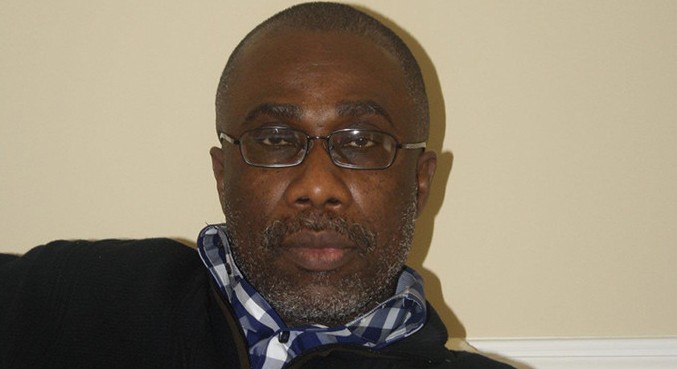
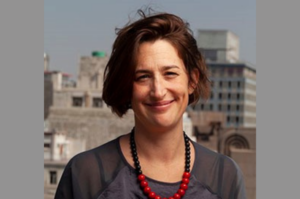
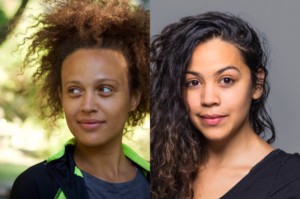
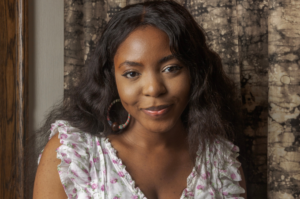
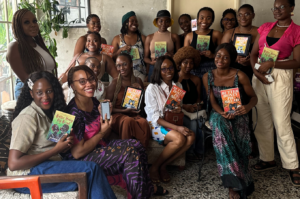
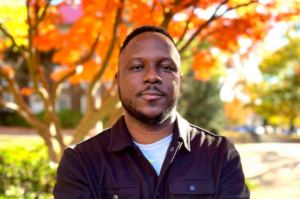
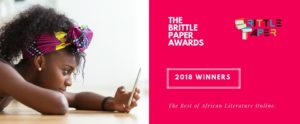

The YNaija Interview: Buhari's war on corruption is 'thieves fighting with thieves' - Pa Ikhide - YNaija January 18, 2016 03:51
[…] views on contemporary Nigerian literature are well documented here, here, here, and all over the Internet. The future of Nigerian literature is here and it is exciting. Our […]